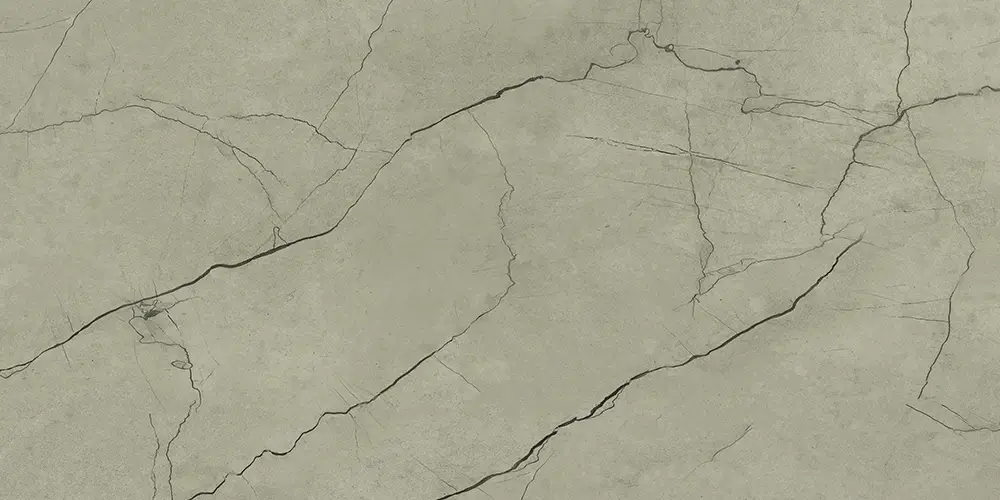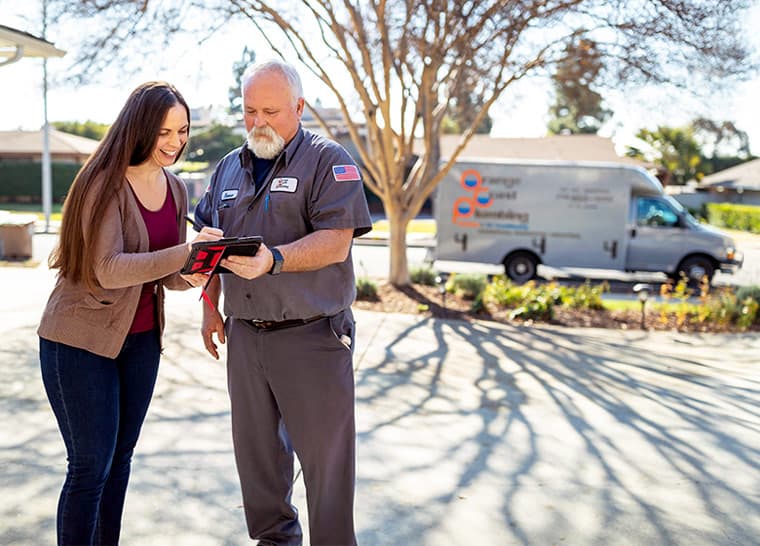Most Southern California homes sit on a concrete slab foundation. Much of their plumbing runs directly through pipes in the slab.
If this sounds like the recipe for a plumbing disaster, it can be. Leaks in the slab are difficult to detect and even harder to repair.
A “slab leak” occurs in, under, or around the slab foundation. It’s a common cause of mold growth, house flooding, and sewage backup. It’s a genuine threat to your home’s structural integrity.
In a worst-case scenario, your insurance company may not cover the repair cost. You’ll face a hefty bill or the real possibility of having to move.
Slab Leaks Are an “Old Plumbing” Problem
Slab leaks rarely occur in new buildings. If they do, it’s usually because of:
- Faulty construction
- Shifting or vibrating soil
- Poor-quality plumbing pipes
But homes built before 1980 are highly vulnerable to slab leaks, especially if they sit on shifting or corrosive soil and have never been repiped.
How to Spot a Slab Leak
Most slab leaks start as tiny pinhole leaks barely visible to the naked eye. Worse, the leak may be buried deep in your home’s foundation. You’ll never find it without special equipment. So you’re left to search for symptoms of a leak, which can include:
- Mold growth in or around the foundation
- Puddles of water near the foundation
- Running water in wall cavities or closets
- Unexplained higher-than-normal water bills
- Hissing, gurgling, or rumbling sounds coming from beneath the slab
Call a plumber immediately if you notice any of these things.
Realistically, your first indication of a slab leak may be a flooded living room, at which point you’re facing an invasive and expensive repair. That’s how fast a pinhole leak can evolve into a full-blown pipe burst.
The repair itself can take weeks or even months.
- A plumber will pinpoint the leak and shut down the water in your house. He’ll excavate the source of the leak and replace the damaged pipe and other badly corroded lines. Depending on the extent of the damage, pipe bursting or cured-in-place repair may be your most affordable option.
- Teams of specialists, some in hazmat suits, will descend on your home. They’ll rip up the flooring and remove moldy drywall, insulation, etc. Huge drying fans will run day and night.
- Areas affected by mold may need several rounds of chemical treatment.
- Construction workers will patch the concrete foundation. They’ll install new flooring, insulation, drywall, baseboards, etc.
- Painters will paint the new drywall and baseboards. They’ll repaint several walls if they can’t match your paint exactly.
Slab leak repair is definitely not a DIY affair.
If the process sounds disruptive, that’s because it is. You may have to check into a hotel for a few days.
A Smart Leak Detector: Your Best Defense Against Slab Leaks
A leak detector is a device that monitors the water in your plumbing system.
The best leak detectors have smart learning capability and Wi-Fi connectivity. They look at water pressure, temperature, and use patterns, and analyze the data. If water pressure rises too high, they downregulate it. If water temperatures fall outside the normal range or water consumption spikes, they send alerts. Best of all, they can detect the tiniest pinhole leaks and automatically shut down the water to your plumbing before they cause catastrophic damage.
Orange Coast Plumbing sells and installs the Moen Flo Smart Water Monitor & Shutoff, one of the best smart water leak detectors on the market.
How a Smart Water Leak Detector Works
- We install the water leak detector on your home’s main water line.
- The appliance takes 7-10 days to understand your patterns of water use.
- The Moen app gives you real-time alerts on your water use. You can set up the water shut-off limit and configure settings for home and away water use.
- The detector automatically shuts off water to the house in case of a leak.
Benefits of a Smart Leak Detector
Water damage is the second most common home insurance claim. A smart water leak detector calls for an upfront investment but will pay for itself over the appliance’s life.
Benefits include:
- Protection from catastrophic water damage
- Lower insurance premiums
- Ability to control water flow from an app
- Insight into your daily water use
How to Save Money on a Moen Flo Inline Water Leak Detector
SoCal Water$mart has a rebate program for qualifying devices. It offers a base incentive of $100.
Your city water supplier or water district may offer additional rebates.
Many insurance companies are willing to work with homeowners. Some will schedule the installation of a leak detector and subsidize the cost, while others will offer discounts on premiums.
Please contact Orange Coast Plumbing to learn more about the benefits of water leak detectors and the rebate programs available in Orange County.
FAQs: Preventing Slab Leaks
Q: What’s a slab leak?
A slab leak occurs when a water pipe beneath the concrete foundation of a home develops a leak. Over time, this can lead to significant water damage, mold growth, and structural issues.
Q: How can I tell if I have a slab leak?
Signs of a slab leak include unexpected spikes in your water bill, the sound of running water when all taps are off, damp carpet or flooring, and visible cracks in your foundation.
Q: What causes slab leaks?
Common causes include pipe corrosion due to chemical interactions with soil, high water pressure causing wear on the pipes, poor installation practices, and natural shifts in the ground.
Q: Are slab leaks dangerous?
While not life-threatening, slab leaks can undermine the structural integrity of your home, leading to potentially dangerous situations and costly repairs.
Q: Can a smart water leak detector help prevent slab leaks?
It can alert you to the presence of moisture or leaks early on, enabling quicker action to prevent a minor leak from becoming a major issue.
Q: How do smart water leak detectors work?
Smart water leak detectors use sensors to detect changes in water pressure, flow rate, and temperature. They can be connected to your smartphone for remote monitoring and alerts.
Q: What are other ways to prevent slab leaks?
Regularly inspecting and maintaining your plumbing system, watching for signs of leaks, and addressing any issues promptly can help prevent slab leaks. Also, you may want to consider installing a whole-house water filtration system to reduce the corrosive chemicals in your water.
Q: Can smart water leak detectors detect slow leaks?
The best water leak detectors are sensitive enough to detect pinhole leaks and shut down the water supply.
Q: What should I do if I receive an alert from my smart water leak detector?
Investigate the area for signs of water. If the leak is confirmed and manageable, attempt to stop it; otherwise, contact a professional plumber immediately.
Q: Are smart water leak detectors difficult to install?
Some smart water leak detectors are designed for easy DIY installation, requiring minimal tools and expertise. They typically connect directly to your home Wi-Fi network for instant alerts.
Q: Can smart water leak detectors save me money?
We’ll answer the question with another question: Have you ever experienced a slab leak? Repairing can be brutally expensive, especially if your home needs mold removal or foundation work. Yes, a smart water leak detector can save money by nipping the problem in the bud.


